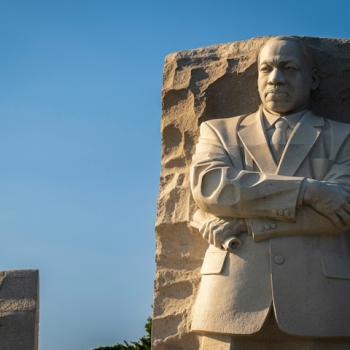Last week I was struck by the headline of an article in USA Today entitled "Can the Cause of Social Justice Tame Our Culture Wars?" The piece, written by Tom Krattenmaker, called attention to a group of progressive evangelicals who recently gathered together in Portland for a conference devoted to issues facing the next generation of Christian leaders.
Hosted by Gabe Lyons, and called the Q Conference, the meeting focused on the way Christians can be agents of change in the world by working for justice for the poor, abused, enslaved, oppressed, born, unborn, exploited, and mistreated. Krattenmaker suggests that by working together with secularists who are also concerned about social justice, progressive evangelicals can go a long way toward ending the culture wars.
I give a hearty amen to the work of Gabe Lyons, the Q Conference, and all of those young evangelicals concerned with social problems. I saw Lyons and others from his generation give some phenomenal presentations at the Coalition for Christian Outreach's "Jubilee" conference in February and I have come to know and love a lot of these young world-changing evangelicals through my work as a history professor at Messiah College.
But after reading Krattenmaker's piece, and thinking about how we might end the culture wars, I could not help but wonder if the thing that ails us most is not our failure to engage in activism, but our failure to understand and empathize with those with whom we might disagree. Perhaps our failure to bringing reconciliation and healing to our divided culture is, at its core, a failure of liberal learning, particularly as it relates to the study of history. Christians and secularists can team up in social justice projects, and Barack Obama can give stirring speeches about ending the Red State-Blue State divide, but until the American people develop the discipline of listening to one another, we will remain stalled in our attempts at reconciliation.
As a Christian, I believe the kind of mutual understanding we need can be accomplished through prayer, hospitality, and Holy-Spirit-infused compassion, but it can also be accomplished by training young people to enter worlds—worlds of the past—that are foreign to them. We need to do a better job of teaching young people to interact with the sources and documents from these worlds in a way that requires them to listen and understand before casting judgment.
The study of history forces us to lay aside our own self-interest and see the world from the perspective of someone else. Unlike any other discipline, history requires us to engage the human condition primarily through understanding and empathy, not criticism. It is easier to condemn the people of 1692 Salem for burning witches than it is to understand the 17th century view of the world that led them to commit such acts.
I rarely hear young, progressive, evangelical Christians who want to fight for social justice speak about their callings or vocations in terms of the study of history or some other humanities-related topic. Yet it seems to me that a liberal arts education focused on these disciplines is, without question, the best place to learn the kinds of skills essential to being a world-changer.
The study of African history is not going to feed the poor. The study of colonial America will not bring relief to the oppressed. The study of the Russian Revolution is not going to alleviate the plight of the "least of these." But when taught correctly, history will teach the virtues necessary to end the culture wars, transform our ways of thinking about others, and, in some small way, bring meaningful change to the world.
Can the study of history end the culture wars? Sometimes the Lord works in mysterious ways.
7/12/2011 4:00:00 AM





